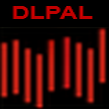Is Momentum Effect Result of Over- of Under-reaction?
#3 – Sector Momentum – Rotational System
#14 – Momentum Effect in Stocks
Authors: Heidari
Title: Over or Under? Momentum, Idiosyncratic Volatility and Overreaction
Link: http://papers.ssrn.com/sol3/papers.cfm?abstract_id=2687480
Abstract:
Several studies have attributed the high excess returns of the momentum strategy in the equity market to investor behavioral biases. However, whether momentum effects occur because of investor underreaction or because of investor overreaction remains a question. Using a simple model to illustrate the linkage between idiosyncratic volatility and investor overreaction as well as the stock turnover as another measure of overreaction, I present evidence that supports the investor overreaction explanation as the source of momentum effects. Furthermore, I show that when investor overreaction is low, momentum effects are more due to industries (industry momentum) rather than stocks.
Notable quotations from the academic research paper:
"The existence of signi�ficantly positive excess returns from momentum strategies is well established in the literature. However, there is no consensus over what drives these returns. Finding a risk-based explanation for the momentum e�ffects is a tremendously di�fficult task and momentum constitutes perhaps "the toughest challenge for rational theories of the cross-section of stock returns" (Nagel, 2001). As an alternative, behavioral theories of momentum eff�ects have been suggested by a number of researchers.
The models in this behavioral literature can be divided into two camps: those that characterized price momentum as investor underreaction and those that view it as an investor overreaction to information.
The contributions of this paper are as follows. First, I provide a channel for the contribution of investor overreaction to the idiosyncratic volatility of stocks. Second, I present empirical evidence of the relationship between momentum e�ffects, idiosyncratic volatility and stock turnover. I argue that these results are consistent with the overreaction explanation of momentum e�ffects and also provide a clearer explanation for the connection between momentum and idiosyncratic volatility. Third, I shed some light on the relationship between stock momentum and industry momentum and show that the contribution of the industries in the momentum varies with the level of �firm-speci�fic information which is proxied by idiosyncratic volatility.
In this paper, I verify that the momentum e�ffect is stronger among stocks with higher idiosyncratic volatility. I then examine an alternative null hypothesis that does not rely on mispricing or limits to arbitrage. I employ a simple model and show that idiosyncratic volatility is related to the investor overreaction. By introducing the relationship between idiosyncratic volatility and overreaction, I conclude that the higher momentum e�ffect among stocks with higher idiosyncratic volatility is due to investor overreaction. I, therefore, provide support for the overreaction explanation of momentum e�ffects.
In this study, I analyze the relationship between industry and stock momentum from a di�fferent perspective. I show that industry momentum contributes more to stock momentum when idiosyncratic volatility is low. Among stocks with high idiosyncratic volatility, most of the momentum returns are driven by stocks rather than industries. This is consistent with the overreaction explanation: when idiosyncratic volatility is low, it implies that investors' overreaction is lower, so momentum returns (which is lower than those of the higher idiosyncratic volatility stocks) are more due to industry momentum. When idiosyncratic volatility is high, there is higher investor overreaction to the stock level information and most of the momentum e�ffect is solely individual security momentum rather than industry momentum."
Are you looking for more strategies to read about? Check http://quantpedia.com/Screener
Do you want to see performance of trading systems we described? Check http://quantpedia.com/Chart/Performance
Do you want to know more about us? Check http://quantpedia.com/Home/About
Share onLinkedInTwitterFacebookRefer to a friend
























